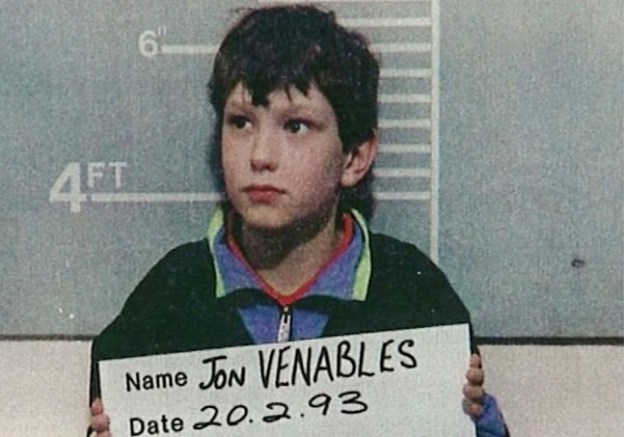
Even criminals have rights, and these rights extend to the Web if you’re in the U.K. In 1993 at the age of 10, Jon Venables viscously murdered a two-year-old named James Bulger, an incident that swept the nation for obvious reasons. In a peculiar turn of events, pictures of a now 30-year-old Venables surfaced on Twitter, and a U.K. attorney general is threatening users that share the photos with legal action.
Venables spent eight years of what was supposed to be a life sentence in jail for his crimes, and was set free in 2001. In 2010, however, he was sent back to prison for another two years for breaking his parole when he was caught with “indecent images of children.” Now to stay out of trouble and out of jail, he was given a new identity by the U.K. courts when he was freed in 2001 and urged to put his past behind him. Now, he’s resurfaced thanks to the Twitter images.
The photos in question were of Venables and his friends, which seem oddly harmless enough, but the U.K. courts’ attorney general Dominic Grieve wants these photos taken offline. He’s so adamant that instead of threatening individual uploaders of these images, Grieve has turned to the platforms themselves. Google, Facebook, and Twitter have been ordered by the police to take photos of Venables off by way of an injunction, reports The Guardian, which has been closely following the story on Venables. Ironically, Venables “revels in his infamy,” The Sun reports, making it difficult to keep his true identity a secret.
Google and Facebook have yet to give any indication that these companies will comply, although their spokespeople have met with the U.K.’s Common Home Affairs Committee. For now though, Twitter has broken the silence and told the committee that it wasn’t obligated to monitor everything published to Twitter. And Twitter’s spokesperson says that Twitter processes take down requests on a case-by-case basis as they happen, implying that the attorney general or any representative will probably have to find these photos themselves and request a takedown.
“We work with law enforcement here in the U.K. We have established points of contact with law enforcement in the UK where they communicate with us about content, they bring content to our attention that is illegal, and appropriate steps are taken by the company. You may read into those words what you wish in context of the current [issue],” said Sinéad McSweeney, Twitter’s director of public policy in Europe.


